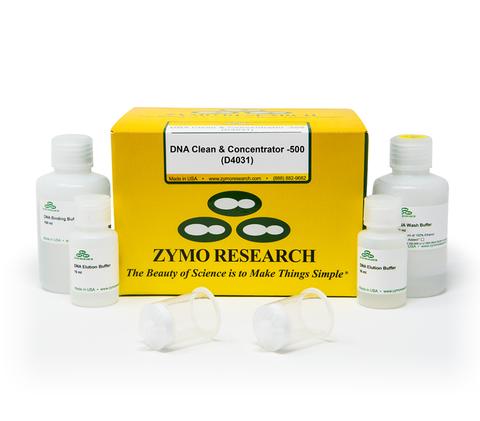
Highlights
- Simple, rapid recovery of ultra-pure DNA from PCR, endonuclease digestions, and cell-free DNA preps, etc.
- Unique column construction allows sample loading and washing to be performed using a centrifuge, microcentrifuge, or vacuum source.
- Eluted DNA is well suited for use in PCR, DNA sequencing, DNA ligation, endonuclease digestion, RNA transcription, radiolabeling, arrays, etc.
Description
Technical Specifications
| Detergent Tolerance | ≤5% Triton X-100, ≤5% Tween-20, ≤5% Sarkosyl, ≤0.1% SDS |
|---|---|
| Elution Volume | ≥ 2 ml |
| Equipment | Microcentrifuge and centrifuge or vacuum source. |
| Purity | Highly purified DNA is eluted with water and is especially well suited for sequencing, ligation reactions, and restriction endonuclease digestions. |
| Sample Source | DNA from large-scale sample sources including restriction endonuclease digestions and “crude” DNA preparations from cell-free lysates. |
| Size Range | 50 bp to 23 kb |
| Yield | ≤ 500 µg total DNA can be recovered. For DNA 50 bp to 10 kb the recovery is 70-95%. For DNA 11 kb to 23 kb the recovery is 50-70%. |
Product FAQ
Q1: What is the minimum input volume of DNA sample?
Working with volumes below 50 µl can result in decreased recovery. We recommend raising the starting volume to 100 µl with water to ensure optimal binding conditions.
Q2: What happens if more DNA was loaded on the columns than the stated maximum binding capacity?
Oversaturation of the column can result in total DNA loss due to clogging of silica matrix.
Q3: How many times can columns be reloaded?
We recommend no more than 5 times as binding efficiency might decrease.
Q4: How to process naked DNA stored in DNA/RNA Shield?
Use the standard protocol (add 2 or 5 volumes of DNA binding buffer depending on DNA size.
Q5: What is the lower limit and minimal amount of DNA that can be recovered?
Picogram levels of DNA can be recovered. The limitation is based on sensitivity of detection method.
Q6: What to do if ethanol addition to the DNA Wash Buffer was omitted?
The DNA will be eluted off the column. Rebind samples using the appropriate amount of DNA Binding Buffer and wash the column with the properly prepared wash buffer.
Citations
Reviews
“I sampled this kit next to a kit we already use. I had three of the same sample, two for the Zymo kit and one for the other. On one of the ones designated for your kit, I accidentally added the sample directly to the column filter, then added other reagents (I figured I might as well try it). The other I did as per the instructions. The one on which I goofed gave a similar purification and concentration as the other kit, while the one I did properly yielded approximately four times the DNA per µL as the other kit. I am very happy with this result, and when I rerun my samples, I plan to use your product.”
– Rosalind P. (University of Arkansas for Medical Sciences)
“Almost no loss of elution buffer at the final step. It is quite impressive compared to the other kits I have used, which lose about 5-7µl.”
– Joseph R. (Miller School of Medicine, University of Miami)
“It was a very simple procedure and it gave a concentration ten times the original amount.”
– Kimberly M. (University of Pennsylvania)
“The elution volume is low enough to concentrate any sample very well and the efficiency is not compromised at all.”
– Marissa V. (Harvard Medical School)
“This kit performed as described. I was able to obtain good quality and yield of the DNA -better than with a couple of competitor’s kits.”
– Kathleen B. (SUNY-ESF)
Kit Components
| Cat # | Name | Size |
|---|---|---|
|
D3004-4-16 |
DNA Elution Buffer | 16 ml |
|
D3004-4-50 |
DNA Elution Buffer | 50 ml |
|
D4003-1-L |
DNA Binding Buffer | 50 ml |
|
D4003-2-24 |
DNA Wash Buffer (Concentrate) | 24 ml |
|
D4003-2-48 |
DNA Wash Buffer (Concentrate) | 48 ml |
|
C1013-10 |
Zymo-Spin VI Columns | 10 Pack |
|
C1013-20 |
Zymo-Spin VI Columns | 20 Pack |
|
D4004-1-L |
DNA Binding Buffer | 100 ml |


